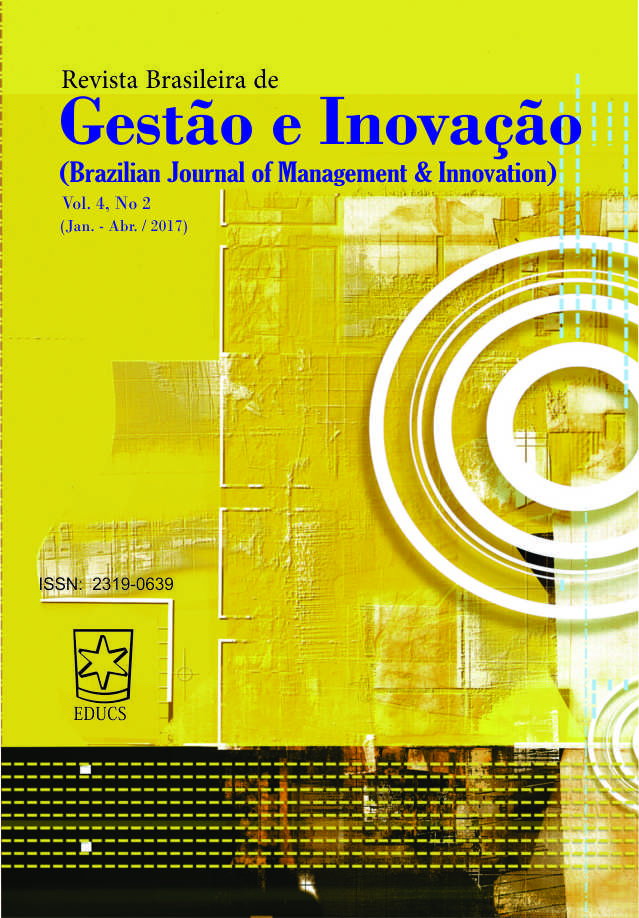CIBERCULTURA E INOVAÇÃO: REFLEXÕES SOBRE O AMBIENTE INOVATIVO DAS ORGANIZAÇÕES NA ERA DA INFORMAÇÃO E SEUS CENÁRIOS FUTUROS | CYBERCULTURE AND INNOVATION: REFLECTIONS ON THE ORGANIZATIONAL INNOVATIVE ENVIRONMENT IN THE INFORMATION AGE AND THEIR FUTURE SCENARIOS
Keywords:
Gestão da Inovação, Cibercultura, Interconexão, Comunidades Virtuais, Inteligência ColetivaAbstract
A ascensão da cibercultura (cultura digital), um resultado da convergência entre a socialidade contemporânea e as tecnologias de informação e comunicação microeletrônicas digitais (TICs), baseadas no ciberespaço, como um paradigma social, econômico e cultural, vem trazendo desafios importantes para a sociedade e para as diversas áreas das organizações. A gestão da inovação também vem sendo impactada. O presente artigo visa apresentar uma discussão teórica de como as características essenciais da era da informação e da cibercultura estão impactando a gestão da inovação. Para tanto, três pontos característicos da sociedade cibercultural são apresentados, a saber: interconexão (pessoas, através das ferramentas TICs, buscam conexão umas com as outras), comunidades virtuais (agregações sociais que emergem das redes de computadores onde as pessoas formam redes de relacionamentos no ciberespaço) e inteligência coletiva (construção de conhecimento e da especialização dos membros de comunidades, através da discussão e da colaboração coletiva, coordenada em tempo real). Por fim, apresentam-se cenários e temáticas de inovação nas organizações que são resultantes da influência dos três pontos citados. São quatro cenários, a saber: Redes de Inovação, Open Innovation, os Nativos Digitais e o colaboracionismo ou Crowdsourcing. Colocam-se ainda implicações acadêmicas e gerenciais da cibercultura e destes cenários para a gestão da inovação.
DOI: 10.18226/23190639.v4n2.04
Downloads
Published
How to Cite
Issue
Section
License
The author must guarantee that:
- there is full consensus among all the coauthors in approving the final version of the document and its submission for publication.
- the work is original, and when the work and/or words from other people were used, they were properly acknowledged.
Plagiarism in all of its forms constitutes an unethical publication behavior and is unacceptable. Revista Brasileira de Gestão e Inovação has the right to use software or any other method of plagiarism detection.
All manuscripts submitted to RBGI - Revista Brasileira de Gestão e Inovação go through plagiarism and self-plagiarism identification. Plagiarism identified during the evaluation process will result in the filing of the submission. In case plagiarism is identified in a manuscript published in the journal, the Editor-in-Chief will conduct a preliminary investigation and, if necessary, will make a retraction.
This journal, following the recommendations of the Open Source movement, provides full open access to its content. By doing this, the authors keep all of their rights allowing Revista Brasileira de Gestão e Inovação to publish and make its articles available to the whole community.
RBGI - Revista Brasileira de Gestão e Inovação content is licensed under a Creative Commons Attribution 4.0 International License.
Any user has the right to:
- Share - copy, download, print or redistribute the material in any medium or format, linking to RBGI site.
- Adapt - remix, transform and build upon the material for any purpose, even commercially.
According to the following terms:
- Attribution - You must give appropriate credit, provide a link to the license, and indicate if changes were made. You may do so in any reasonable manner, but not in any way that suggests the licensor endorses you or your use.
- No additional restrictions - You may not apply legal terms or technological measures that legally restrict others from doing anything that the license permits.
#RBGI







